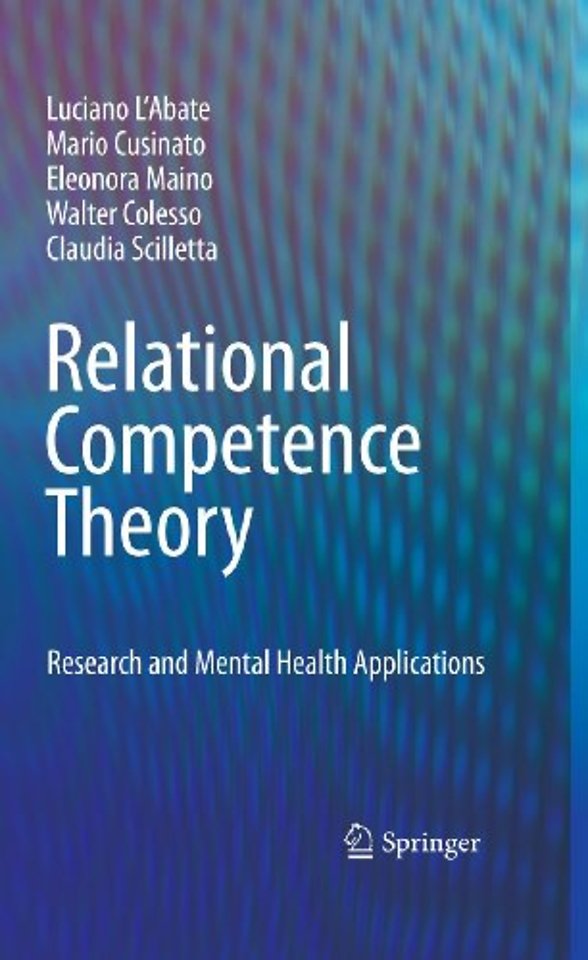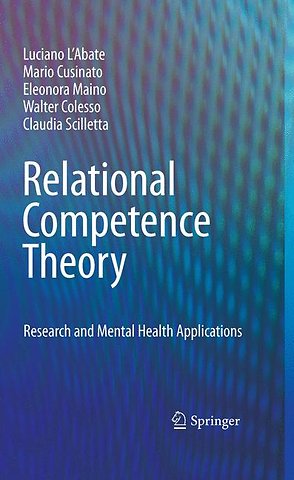Relational Competence Theory
Research and Mental Health Applications
Samenvatting
Relational competence—the set of traits that allow people to interact with each other effectively—enjoys a long history of being recorded, studied, and analyzed. Accordingly, Relational Competence Theory (RCT) complements theories that treat individuals’ personality and functioning individually by placing the individual into full family and social context. The ambitious volume Relational Competence Theory: Research and Mental Health Applications opens out the RCT literature with emphasis on its applicability to interventions, and updates the state of research on RCT, examining what is robust and verifiable both in the lab and the clinic. The authors begin with the conceptual and empirical bases for the theory, and sixteen models demonstrate the range of RCT concerns and their clinical relevance, including:
- Socialization settings for relational competence.
- The ability to control and regulate the self.
- Relationship styles.
- Intimacy and negotiation.
- The use of practice exercises in prevention and treatment of pathology.
- Appendices featuring the Relational Answers Questionnaire and other helpful tools.
Relational Competence Theory both challenges and confirms much of what we know about the range of human relationships, and is important reading for researchers, scholars, and students in personality and social psychology, psychotherapy, and couple and family counseling.
Specificaties
Inhoudsopgave
Anderen die dit kochten, kochten ook
Net verschenen
Rubrieken
- aanbestedingsrecht
- aansprakelijkheids- en verzekeringsrecht
- accountancy
- algemeen juridisch
- arbeidsrecht
- bank- en effectenrecht
- bestuursrecht
- bouwrecht
- burgerlijk recht en procesrecht
- europees-internationaal recht
- fiscaal recht
- gezondheidsrecht
- insolventierecht
- intellectuele eigendom en ict-recht
- management
- mens en maatschappij
- milieu- en omgevingsrecht
- notarieel recht
- ondernemingsrecht
- pensioenrecht
- personen- en familierecht
- sociale zekerheidsrecht
- staatsrecht
- strafrecht en criminologie
- vastgoed- en huurrecht
- vreemdelingenrecht







